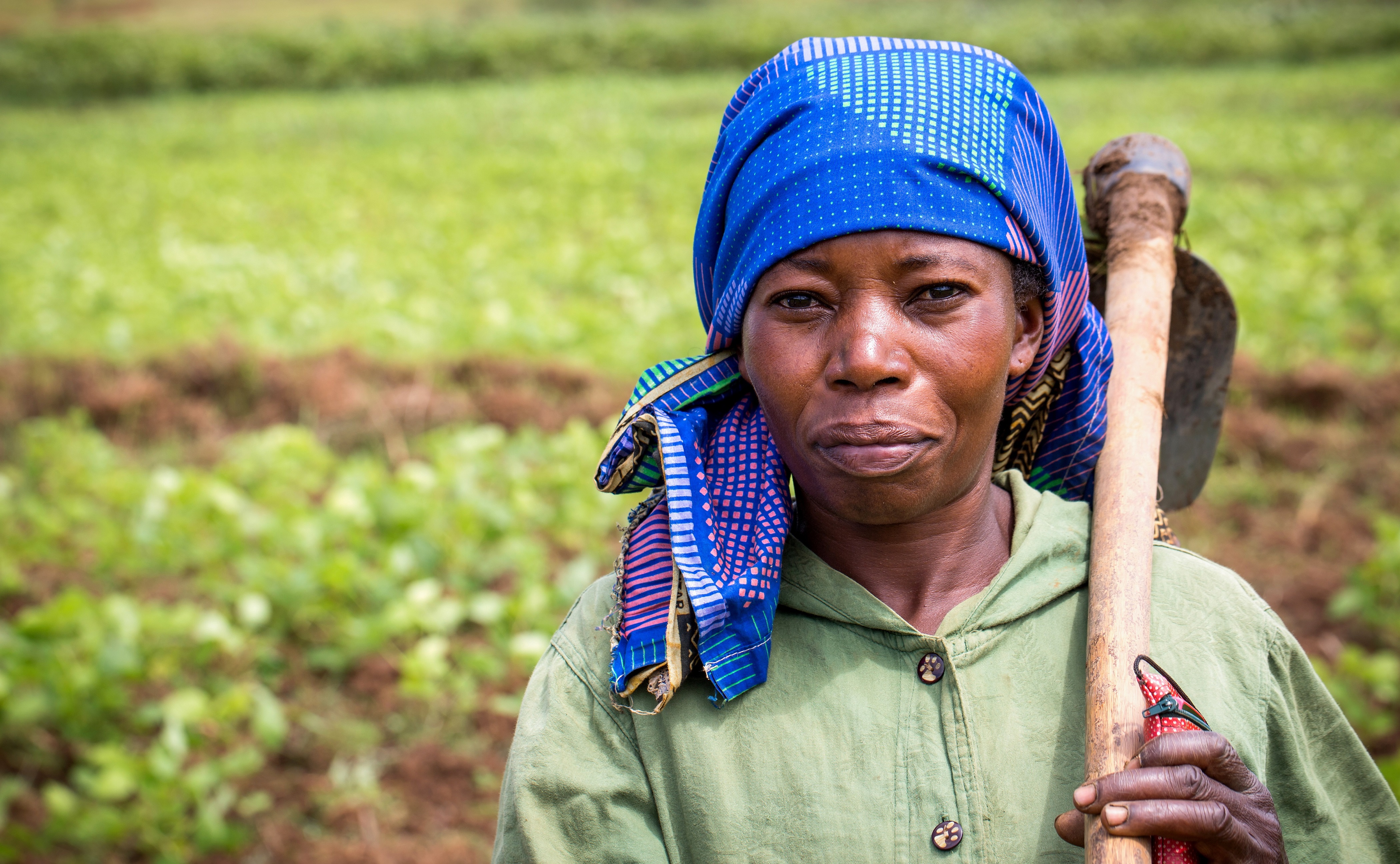[ad_1]

Farmer in her field in South Kivu, an area of DRC that has been devastated by more than two decades of conflict-related displacement.
19 April 2018, Rome/Kinshasa -The United Nations World Food Programme (WFP) and the Food and Agriculture Organization of the United Nations (FAO) are launching an innovative joint project to rebuild livelihoods shattered by conflict in eastern Democratic Republic of Congo (DRC), by empowering women, supporting farmers and helping build peace between communities – all thanks to a €35 million contribution from the German people.
Working hand-in-hand and using their collective expertise, WFP and FAO will offer a suite of assistance to rural farming communities returning home after they were forced to flee by fighting that has swept the region. The support will provide both a short-term safety net for people who’ve lost almost everything, as well as micro-financing, numeracy and literacy training, economic empowerment training for women and conflict prevention tools to offer a brighter future in one of the Africa’s most severe internal displacement crises.
“The combined economic, social, technical and financial capacity building approach sets this initiative apart. Thanks to this contribution, WFP and FAO are able to join forces to revive the local economy and the food production of small-scale farmers, including vulnerable groups such as returnees and female-headed households. It will also enable us to strengthen social cohesion, and bring hope and perspective to people who have been through very difficult situations,” said Alexis Bonte, FAO acting Representative in the DRC.
“Thanks to the generous contribution of Germany, WFP and FAO will collaboratively work with the Government of the DRC to accelerate the recovery and diversification of smallholder farmers’ livelihoods,” added Claude Jibidar, WFP’s Representative and DRC Country Director. “If we make sure that the objectives of this project are achieved, we will not only save lives but also change lives”.
Germany’s contribution will mean that 180,000 people in the provinces of North and South Kivu receive help over three years. The funds come from the Federal Ministry for Economic Cooperation and Development (BMZ) and will be channeled to WFP and FAO through the German development bank (Kreditanstalt für Wiederaufbau, KfW).
Families will benefit from better access to markets, training in sustainable agricultural production, including post-harvest management, adequate agro-processing and marketing of their produce to boost their income and improve their food and nutrition security.
Family farming is the main livelihood activity for people in North and South Kivu that brings at the same time food, income and dignity. Once known as the breadbasket of the Congo, the economic fabric of the area has been devastated by more than two decades of conflict-related displacement, natural disasters, climate shocks and disease.
Despite the solidarity of local communities and the generosity of our donors, the food security situation in eastern DRC and across the country remains precarious, with 7.7 million people severely hungry nationwide. In post-conflict areas, people returning home face extraordinary hardships. A scarcity of resources and economic opportunities often fuels frustrations that can spark fresh violence in a region where millions have already died in successive ways of violence.
This strategic collaboration between FAO and WFP is built on existing successful programmes including “Purchase for Progress” (P4P) and “Food Assistance for Assets” (FFA), which also feed into other ongoing partnerships like the Rome-based Agencies’ Resilience Initiative, funded by Canada. The aim is to bridge the gap between humanitarian assistance and development work, by improving value chains and livelihood development for smallholder farmers, thus supporting the emergence of more resilient and peaceful communities.
[ad_2]
Source link





